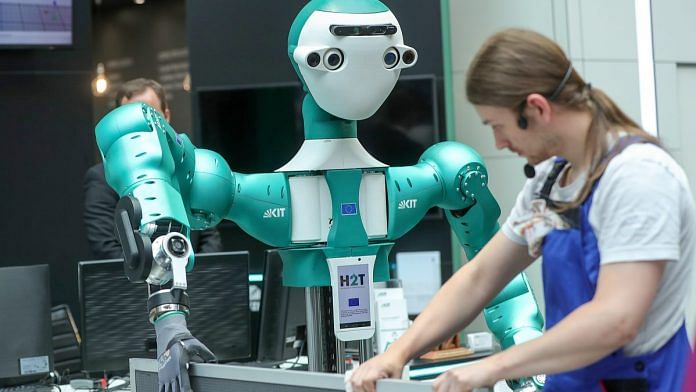Kids today have a chance to interact with their toys, which have built-in sensors, speakers, cameras and microphones that allow them to engage in ways never imaged before. The toys can customize the experience as they learn more about the child, opening children up to a new digital frontier with new risks and challenges. As children are more connected to the internet, parents and guardians need to understand the capabilities of such devices and how they should be secured.
To highlight and encourage new solutions, the Generation AI project community, in partnership with the World Economic Forum, developed the Smart Toy Awards. These awards recognize ethically and responsibly designed AI-powered toys that create an innovative and healthy play experience for children.
The judges reviewed submissions using a new set of governance guidelines and criteria for smart toys. The judges are from around the world, across sectors and industries, and include experts in children’s rights, computer science, AI, robotics, education, medicine and developmental science. The judging committee used the following set of questions to guide them during the selection process:
- How does the toy protect children and other users’ data privacy and cybersecurity?
- How is the toy accessible for children with physical, mental, and learning disabilities, including neurodiversity, and children speaking languages other than English and from other cultures?
- How does the toy innovatively use AI and how is the use of AI communicated to the child user and their parents/guardians?
- How is the toy age and developmental stage appropriate and how does it promote healthy play and child development?
This year’s finalists range from a self-driving car for kids to build to a smart train set. The competition encourages smart, interactive play and provides a special focus on smart toys designed for children with special needs and disabilities.
Also read: ‘This call is being recorded for training and quality control’ — and your voice is too
The finalists
Twin Science Autonomous Vehicle Kit
Twin Science Autonomous Vehicle Kit is a self-driving car for kids they can build. Kids learn how to build a self-driving car from a kit that includes sensors, cameras and motors.
Intelino Smart Train
Intelino Smart Train is a smart train set that teaches kids how to code. Kids can give the train commands by placing coloured tiles on the tracks or controlling it from the app.
LEGO VIDIYO
LEGO VIDIYO is a music video maker that uses augmented reality. The app lets kids direct and star in their own music videos using LEGO sets and mini-figures.
PlayShifu Plugo
PlayShifu Plugo is an educational augmented reality gaming kit. Kids use real-world toys to play games on a tablet. Learning spelling, music, maths and science along the way
ROYBI Robot
ROYBI Robot is an educational AI-powered robot. The robot creates and teaches personalized lessons in languages, sciences, technology, engineering and math.
Leka Alpha
Leka Alpha is a robot for children with special needs. The robot uses movement, lights and games to develop kids’ cognitive, physical and emotional skills.
CoderMindz
CoderMindz is a board game that teaches kids about AI developed by a 16-year-old inventor. Players must train their playing pieces to navigate the board. It teaches kids the fundamental concepts of AI.
Why smart toys matter
These winners mark an important first step in tackling governance for children’s toys and the need to consider issues such as data privacy, cybersecurity, bias and accessibility.
“Globally, there is an urgent need to provide education for all using AI, but first we must produce governance around smart toys and educational AI,” Kay Firth-Butterfield, Head of AI and Machine Learning, World Economic Forum.”
Of course, more work is ahead. Companies, governments and consumers need to be more proactive about safety and data protection. Until that time, parents and caregivers need to be careful and make sure the devices introduced to their children are trusted companies.
The awards show what’s possible with that collaboration and those standards in place.
“We hope the Smart Toy Awards encourages toymakers to strive for excellence in innovation while adopting our governance criteria,” Firth-Butterfield added. “We hope that their approach to using responsible AI in their products will be a beacon for others to follow.”
Register here for and watch the virtual awards show on Saturday, 22 May, at 14.00 EDT when the winners will be revealed. Find more information on the Smart Toys Awards here.
This article was previously published in the World Economic Forum.
Also read: How AI-powered ships can help us collect valuable data about the ocean



